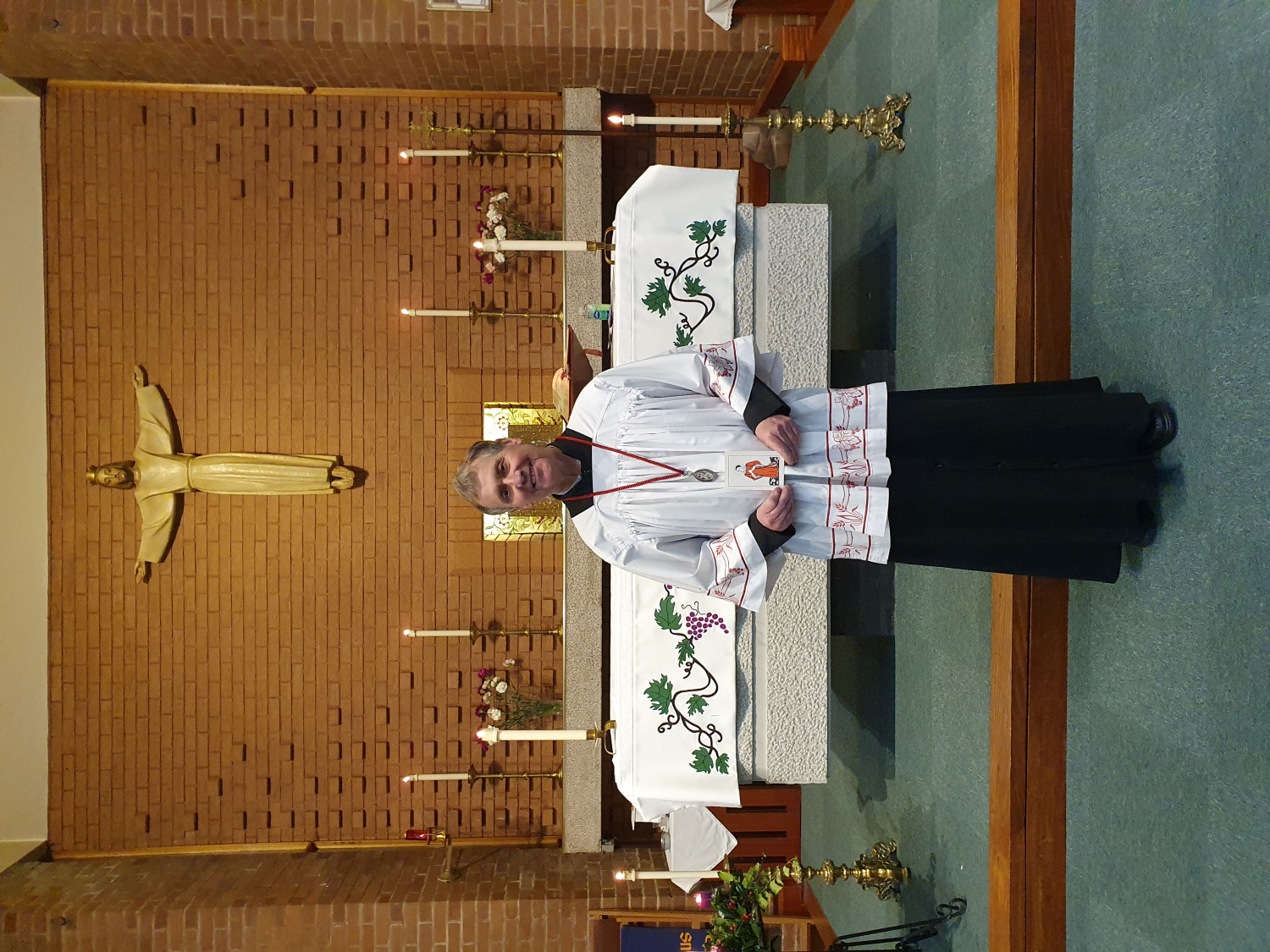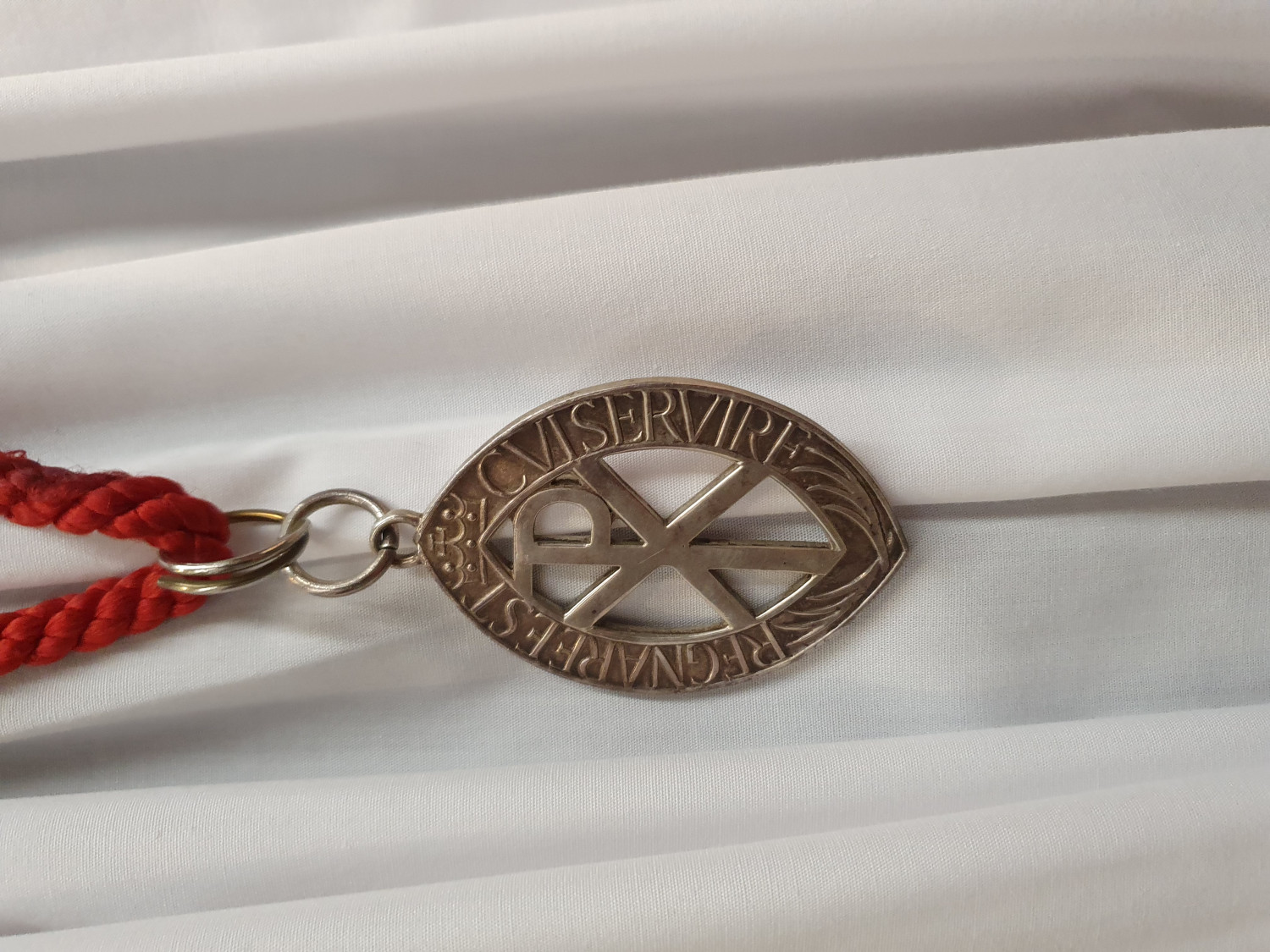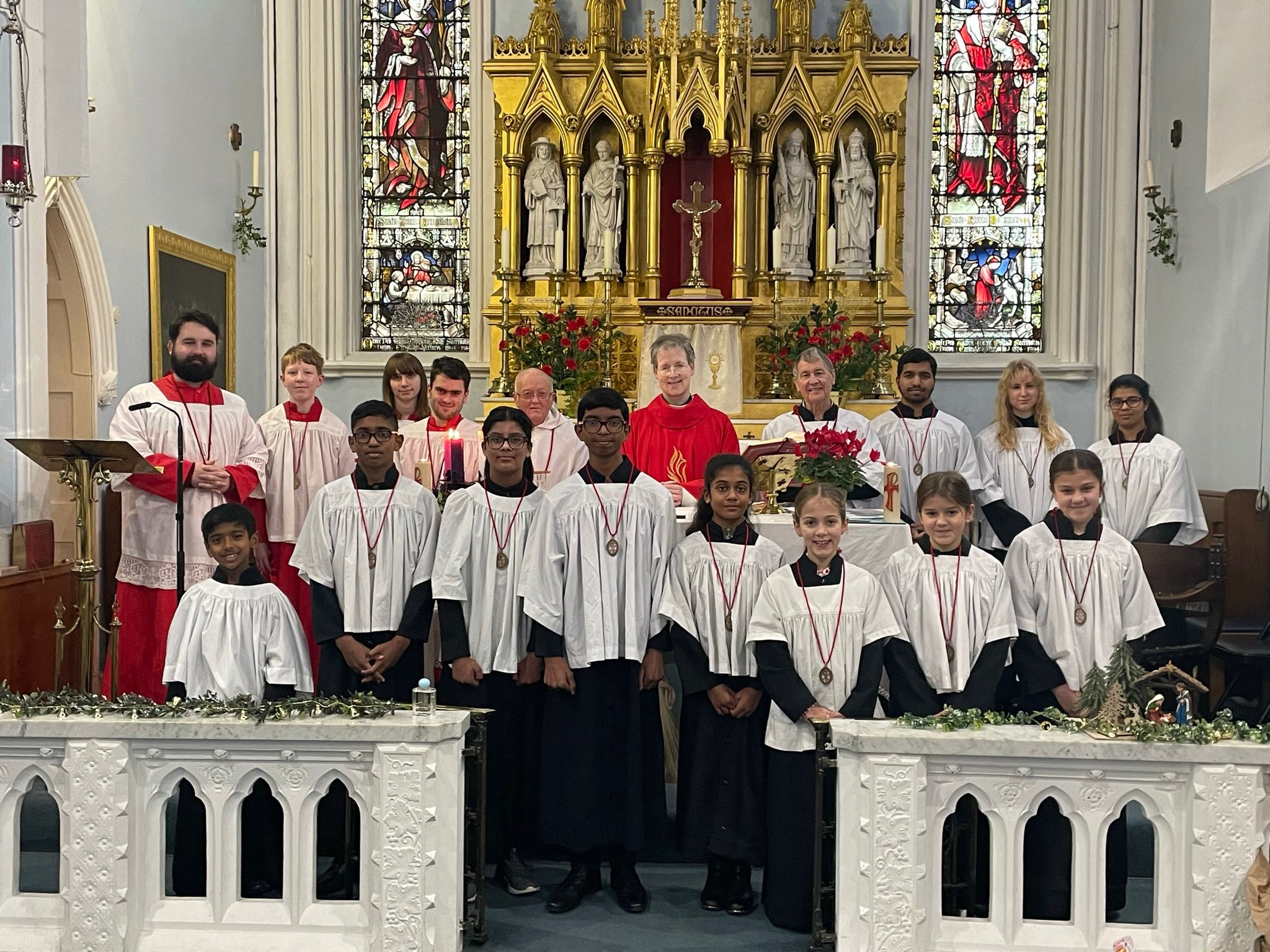
St Stephen (Greek: ΣτÎφανος "Stephanos" meaning "crown")
Stephen was born about 5 AD and died about 34 AD. He has been venerated as the first martyr of Christianity. According to the Acts of the Apostles, he was a deacon in the early church at Jerusalem who aroused the enmity of members of various synagogues by his teachings. Accused of blasphemy, at his trial he made a long speech denouncing the Jewish authorities who were sitting in judgment on him. The Catholic, Anglican, Lutheran, Oriental Orthodox, Eastern Orthodox Churches, and the Church of the East venerate Stephen as a saint. Stephen's name in the original Greek of the Acts of the Apostles is given as Stephanos. Traditionally, Stephen is shown wearing a crown of martyrdom. Artistic representations often depict him with three stones and the martyr's palm frond.
Acts of the Apostles
Saint Stephen is first mentioned in Acts of the Apostles as one of seven deacons appointed by the apostles to distribute food and charitable aid to poorer members of the community in the early church. According to Orthodox belief, he was the eldest and is therefore called "archdeacon".
The reason for deacons is stated to have been dissatisfaction among Greek-influenced and Greek-speaking Jews (known as Hellenistic Jews) that their widows were being slighted in preference to Hebraic ones in distribution of alms from the community funds. Since "Stephanos" is a Greek name, it has been assumed that he was one of these Hellenistic Jews.
Stephen is stated to have been full of faith and the Holy Spirit and to have performed miracles among the people. It seems to have been in synagogues of Hellenistic Jews that he performed his teachings and "signs and wonders" since it is said that he aroused the opposition of the Synagogue of the Freedmen, the Cyrenians, the Alexandrians, and of them that were of Cilicia and Asia. Members of these synagogues had challenged Stephen's teachings, but Stephen had bested them in all debates. Furious at this humiliation, they invented false testimony that Stephen had preached blasphemy against Moses and God. They dragged him to appear before the Sanhedrin, the supreme legal court of Jewish elders, accusing him of preaching against the Temple and the Mosaic Law.
Stephen is said to have been unperturbed and his face looking like that of an angel. In a long speech to the Sanhedrin comprising almost the whole of Acts, Chapter 7, Stephen presents his view of the history of Israel. The God of glory, he says, appeared to Abraham in Mesopotamia, thus establishing at the beginning of the speech one of its major themes, that God does not dwell only in one particular building (meaning Temples). Stephen recounts the stories of the patriarchs in some depth, and goes into even more detail in the case of Moses. God appeared to Moses in the burning bush, and inspired Moses to lead his people out of Egypt. Nevertheless, the Israelites turned to other gods. This establishes the second main theme of Stephen's speech, Israel's disobedience to God.
Stephen faced two accusations: that he had declared that Jesus would destroy the Temple in Jerusalem and that he had changed the customs of Moses. The Roman Catholic Church states that St. Stephen appealed to the Jewish scriptures to prove how the laws of Moses were not subverted by Jesus but, instead, were being fulfilled. He denounced his listeners as "stiff-necked" people who, just as their ancestors had done, resisted the Holy Spirit.
The Stoning of Stephen
Thus castigated, the account is that the crowd could contain their anger no longer. However, Stephen looked up and cried: "Look. I see heaven open and the Son of Man standing on the right hand of God." He claimed that the recently executed Jesus was standing by the side of God. According to Orthodox belief, the Jews shouted, covered their ears and rushed at him. They dragged him out of the city and stoned him to death.
The Guild of St Stephen
The Guild is an international organisation of altar servers, founded in England in 1904 by Father Hamilton McDonald, when he formed a society of Altar Servers at the Convent of the Sacred Heart in London. In 1905, Pope St Pius X, gave his approbation to the canonical establishment of the guild at Westminster Cathedral and in 1906, the Sacred Congregation of Rites made the guild an archconfraternity, enabling all the parish branches to be linked with it. The guild spread and, in 1934, Pope Pius XI enabled all guilds of altar servers throughout the British Commonwealth to be affiliated with the Archconfraternity at Westminster.
Membership of the Guild is open to any server, without limit of age, who can serve Mass, and who has shown a wish to live up to the objects and standards of the Guild.
Servers will have been given adequate training and reach the necessary standard before being admitted to the sanctuary and then should serve satisfactorily for a minimum of six months before being enrolled as a member of the Guild. The parish priest, or the local director of the Guild, decides whether a candidate is eligible and worthy of admission to the Guild and he is empowered to perform the ceremony of enrolment and invest the server with the Guild medal, using the prescribed form of enrolment.
The Medal Of The Guild Of St Stephen

In the centre the letters "XP" are the first two letters of the name "ΧΡΙΣΤÎŒΣ" ("Christos" in Greek).
At the top is the Crown of Victory given by God to everyone who overcomes evil, especially those who die for him.
At the bottom are the palm branches, traditional signs of martyrs who died for Christ.
Around the edge are the Latin words of the Guild motto:
CUI SERVIRE REGNARE EST
(TO SERVE IS TO REIGN)
The Prayer of the Guild of St Stephen
O God, you accept our ministry and allow us to serve at your altar; grant that while serving you we follow the example of our patron, St. Stephen, the martyr, and that we may like him, come to see Jesus standing at your right hand in the Kingdom of Heaven. We ask this through Jesus Christ, your son. Amen
Handbook For Altar Servers
Please click HERE to see the full version of the "Handbook For Altar Servers" and the historical communications from the Vatican dated 1905.
- St Stephen
- Acts of the Apostles
- The Stoning of St Stephen
- The Guild of St Stephen
- The Medal of the Guild of St Stephen
- The Prayer of the Guild of St Stephen
- Handbook for Altar Servers
Photographs of our Parish members of The Guild Of St Stephen
2017

The Guild Of St Stephen Servers of St Chad (Sedgley) and St Peter (Lower Gornal)
(Photograph: St Stephen Day Mass 2017)

Masters of Ceremonies with over fifty years of Service
Patrick Caddick (Lower Gornal) left and Graham Carter RIP (St Chad) right
with Father Paul in the centre
(Photograph: St Stephen Day Mass 2017)
2018

The Guild Of St Stephen Servers of St Chad (Sedgley) and St Peter (Lower Gornal)
(Photograph: St Stephen Day Mass 2018)

Graham Carter RIP (St Chad) left and Patrick Caddick (Lower Gornal) right
with Father Paul in the centre
(Photograph: St Stephen Day Mass 2018)
2020


for 60 years of Altar Service at St Peter's and St Chad's
2023

The Guild Of St Stephen Servers of St Chad (Sedgley) and St Peter (Lower Gornal)
(Photograph: St Stephen Day Mass 2023)
All the photographs above are published with permission of all the subects
© 2017-2023 The Parish Office













